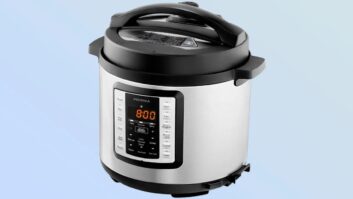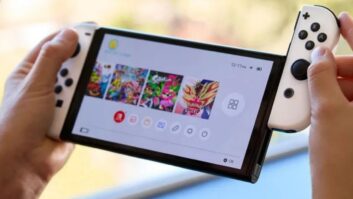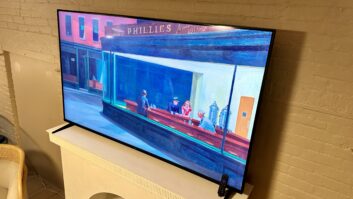Minneapolis – Fueled by sales of higher margin merchandise, such as digital products, Best Buy reported net earnings of $85 million in its fiscal second quarter, 10 percent above the $77 million recorded in the same three months last year.
On a pro forma basis in the second quarter of last year, where the operations of Best Buy and Musicland are combined, as though the acquisition of Musicland had been completed as of the beginning of fiscal 2001, net earnings totaled $70 million.
Total sales for the second quarter ended September 1, as reported, climbed 31 percent to $4.2 billion, compared with $3.2 billion in the year-ago second three months. On a pro forma basis, total sales in the second quarter of 2000 were $3.6 billion.
As reported, sales at Best Buy stores reached $3.8 billion in the second quarter, up 18 percent from $3.2 billion in the year-ago period. Sales at Musicland store were $396 million in the quarter, down 1 percent from a pro forma figure of $400 million last year.
Comp-store sales at Best Buy climbed 2.8 percent in the second quarter, while comp-store sales dipped 0.4 percent at Musicland during the same time frame.
Best Buy’s store gains were broadbased, with sales increasing in virtually every region of the country. Musicland’s flat comps were attributed to double-digit gains in sales of entertainment software, including DVD movies and video gaming, offset by continued softness in sales of prerecorded music.
Looking ahead, Best Buy expects comp-store sales to range from flat to a positive 2 percent in the overall company’s third quarter.
‘The combination of stronger-than-expected consumer interest, a more profitable sales mix and tight controls on spending drove our earnings well above expectations,’ said Richard M. Schulze, chairman/CEO. ‘Both Best Buy and Musicland produced bottom-line results that were ahead of plan,’ he said.
Sales of digital products continued to rise, said Schulze, who anticipates that digital share could reach 18 percent or 19 percent of sales at Best Buy stores in the fourth quarter, up from the 15 percent of sales recorded in the second quarter.
Overall company gross profit margin increased 230 basis points to 22.8 percent in the second quarter, compared with 20.5 percent in the year-ago second three months. On a pro forma basis, however, the climb was reduced to 30 basis points for the period, up from 22.5 percent last year.
The inclusion of Musicland’s higher expense structure drove selling, general and administrative expenses higher by 300 basis points in the second quarter, reaching 19.8 percent, compared with 16.8 percent in the year-ago period. On a pro forma basis, SG&A was 19.2 percent in the year-ago three months.
For the six months, total company sales rose 28 percent to $7.9 billion, up from $6.1 billion last year, and $6.9 billion on a pro forma basis.
Net earnings reached $140 million in the six months, compared with $149 million the previous year, and $135 million pro forma.
Comp-store sales were about even with last year’s six months, as strength in CE and entertainment software offset soft sales of desktop computers.
Gross profit margin in the first six months rose by 230 basis points to 22.8 percent, and 30 basis points pro forma. The higher margin was due to favorable changes in product mix, improved inventory control at Best Buy stores and the inclusion of Musicland results.
Musicland’s financial, which are seasonally slower in the first half, produced an operating loss of $9 million. The segment’s results were slightly better than management’s expectations, due to cost controls, synergies from the acquisition and lower-than-expected re-merchandising costs. Musicland’s results also included about $4 million for goodwill amortization for the second quarter.












